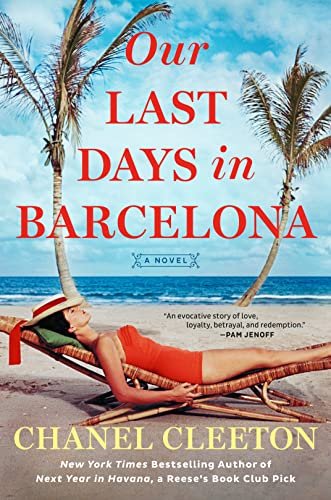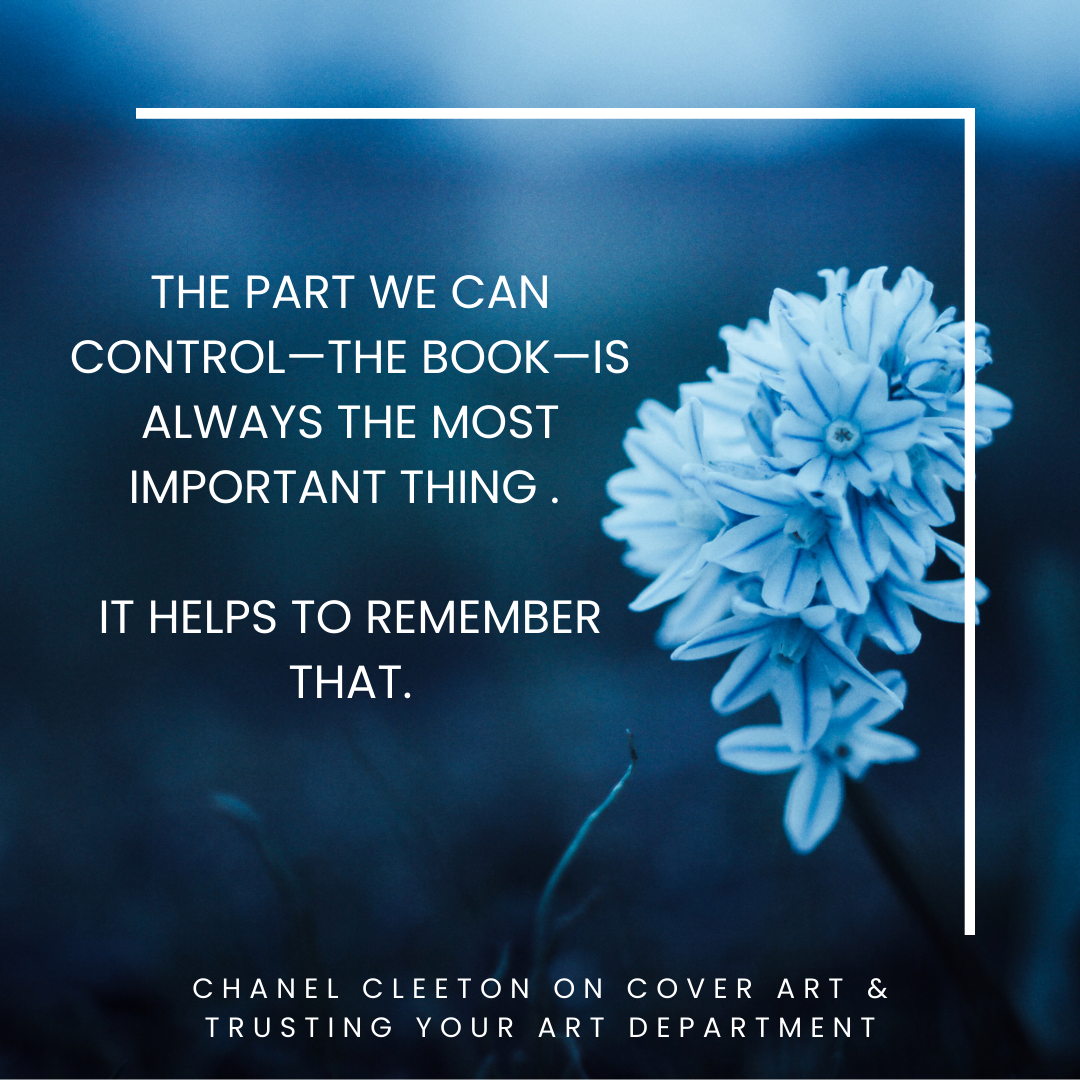I love talking to authors. Our experiences are so similar, yet so very different, that every one of us has a new story to share. Everyone says that the moment you get your cover it really hits you – you’re an author. The cover is your story – and you – packaged for the world. So the process of the cover reveal can be slightly panic inducing. Does it fit your story? Is it what you hoped? Will it sell? With this in mind I put together the CRAP (Cover Reveal Anxiety Phase) Interview.
Today’s guest for the CRAP is Chanel Cleeton, author of Our Last Days in Barcelona. Chanel is the New York Times and USA Today bestselling author of Reese Witherspoon Book Club pick Next Year in Havana, When We Left Cuba, The Last Train to Key West, and The Most Beautiful Girl in Cuba. Originally from Florida, Chanel grew up on stories of her family's exodus from Cuba following the events of the Cuban Revolution.
Did you have any pre-conceived notions about what you wanted your cover to look like?
I have a difficult time visualizing covers, but I am fortunate that the art department at Berkley Publishing is always amazing at taking my novels and depicting them so wonderfully. I did know that I wanted the cover to match the style of my other books featuring Perez family members while still capturing the essence of this novel. Sarah Oberrender has designed many of the covers for this series including Our Last Days in Barcelona and I’ve loved them all!
How far in advance from your pub date did you start talking covers with your house?
My editor and I started talking about cover ideas about a year before my release date.
Did you have any input on your cover?
I did! I’m fortunate that my publisher is great about wanting to make sure I’m happy with my cover. At the onset, they ask me for cover ideas, character descriptions, and any reference images or things I want to share with them that will be helpful. Having worked on a few books and having seen their gorgeous covers, I trust their instincts, so I usually just give some general ideas and provide some information about the book. I love seeing their finished product.
How was your cover revealed to you?
My editor emailed me the final cover to get my opinion.
Was there an official "cover reveal" date for your art?
There was! My first Perez family novel, Next Year in Havana,, was a Reese’s Book Club Pick, and Reese’s Book Club has been such a supportive community with my work. They revealed the cover for me on their social media about eight months before the release.
How far in advance of the reveal date were you aware of what your cover would look like?
I believe I saw the cover about three months before the cover reveal date.
Was it hard to keep it to yourself before the official release?
Yes! It is always so hard to keep it yourself. I tend to look at the cover image over and over again myself before the release because I’m so excited!
What surprised you most about the process?
I really love seeing how the art department interprets my books. I mentioned before that I don’t necessarily visualize my covers, it’s just not a skill set of mine, so there’s something really exciting about seeing how they put it together.
Any advice to other authors about how to handle cover art anxiety?
I’d communicate as much as possible from the beginning if you have a specific vision or things that are important to you about the cover. Having images that the art department can use as inspiration is helpful to give them a visual representation of your cover. I also think it’s great to consult the different departments involved in selling your book to get their opinion on the cover. They often have insight on what types of covers are doing well. I also recommend speaking up if there’s a cover you don’t love. It is a process and sometimes it takes a few tries to get a cover that everyone is happy with. Your agent can be a great advocate here on your behalf. If you’re able to share with some trusted friends that can be another way to get other perspectives on the cover. Ultimately, there’s only so much we can control in the publishing process so there is a sense of hoping for the best, but at the end of the day, the part we can control—the book—is always the most important thing so I think it helps to remember that.


